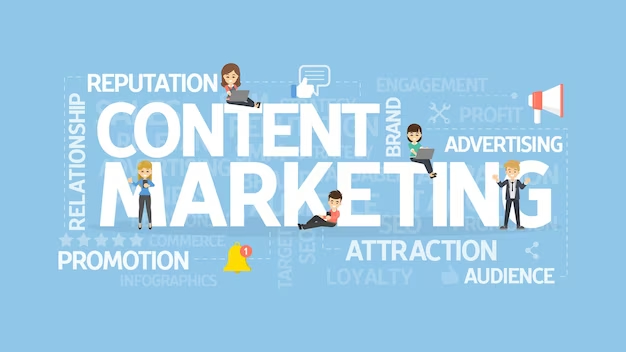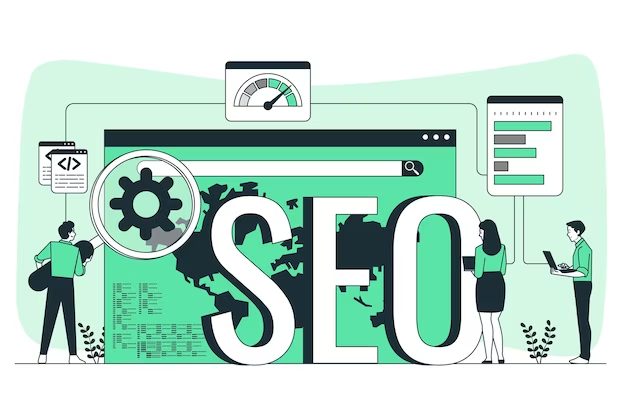SEO vs content marketing is a common debate among marketers, who often wonder which one is more important, effective, or relevant for their business.
SEO stands for search engine optimization, which is the process of improving the visibility and ranking of a website or a web page on search engines.
Content marketing is a strategic marketing approach that focuses on creating and distributing valuable, relevant, and consistent content to attract and retain a clearly defined audience, and ultimately, to drive profitable customer action.
In this article, we will explain what SEO and content marketing are, how they are different, how they are related, and how you can use them together to grow your business.
What is SEO?

SEO is the practice of optimizing a website or a web page for search engines. Following certain rules, guidelines, and best practices that help the website or the web page rank higher. SEO involves two main aspects: on-page SEO and off-page SEO.
On-page SEO
On-page SEO refers to the optimization of the elements that are within the website or the web page. Such as the content, the title, the URL, the headings, the images, the meta tags, the keywords, and the internal links. On-page SEO aims to make the website or the web page relevant, useful, and user-friendly for both the search engines and the users.
Off-page SEO
Off-page SEO refers to the optimization of the elements that are outside the website or the web page. Such as backlinks, social media, reviews, citations, and online reputation.
Off-page SEO aims to make the website or the web page popular, authoritative, and trustworthy, for both the search engines and the users.
The goal of SEO is to increase the quantity and quality of organic traffic. Or the traffic that comes from the natural or unpaid results of search engines to the website or the web page. SEO can help you grow your business by increasing your brand awareness, generating leads, boosting sales, or building loyalty.
What is Content Marketing?

Content marketing is the practice of creating and distributing content that is valuable, relevant, and consistent for a clearly defined audience. To influence their behavior or actions.
Content can take various forms, such as blogs, videos, podcasts, ebooks, newsletters, webinars, infographics, case studies, white papers, and more. Content can also be distributed across various channels and platforms, such as search engines, social media, email, and more.
The goal of content marketing is to attract and retain a loyal and engaged audience, who will eventually become your customers, by providing them with content that educates, informs, or entertains them, and that solves their problems or fulfills their needs.
Content marketing can help you grow your business, by increasing your brand awareness, building your customer loyalty, and driving your sales and revenue.
How are SEO and Content Marketing Different?
SEO and content marketing are different in several ways, such as:
- Focus: SEO focuses on optimizing the website or the web page for search engines, while content marketing focuses on creating and distributing content for the audience.
- Scope: SEO is more technical and specific, while content marketing is more creative and broad.
- Measurement: SEO is more quantifiable and measurable, while content marketing is more qualitative and subjective.
- Outcome: SEO is more short-term and immediate, while content marketing is more long-term and gradual.
How are SEO and Content Marketing Related?
SEO and content marketing are related in several ways, such as:
- Dependency: SEO depends on content marketing, as content is the foundation and the fuel of SEO. Without content, there is nothing to optimize or rank for. Content marketing depends on SEO, as SEO is the channel and the tool that helps content reach and attract the audience. Without SEO, content may not be visible or accessible to the audience.
- Complementarity: SEO and content marketing complement each other, as they work together to achieve the same goal: to drive organic traffic and conversions. SEO helps content marketing by making the content more visible, relevant, and user-friendly, for both the search engines and the users. Content marketing helps SEO by making the website or the web page more popular, authoritative, and trustworthy, for both the search engines and the users.
- Integration: SEO and content marketing should be integrated, as they are not mutually exclusive, but rather, mutually beneficial. SEO and content marketing should be aligned and coordinated, in terms of the strategy, the execution, and the analysis. SEO and content marketing should be consistent and coherent, in terms of the message, the tone, and the style.
How to Use SEO and Content Marketing Together?

SEO and content marketing are not rivals, but rather, allies. SEO and content marketing can and should be used together, to create a powerful and effective marketing strategy that can help you grow your business. Here are some tips and steps on how to use SEO and content marketing together:
Define Your Audience and Your Goals
The first step of using SEO and content marketing together is to define your target audience, their needs wants, challenges, preferences, and behavior. You can use tools such as surveys, interviews, analytics, and personas to gather and analyze data about your audience.
This will help you create and deliver content that is relevant, useful, and appealing to them. You should also define your content marketing goals, such as increasing brand awareness, generating leads, boosting sales, or building loyalty.
You should also define your key performance indicators (KPIs), such as traffic, engagement, conversion, or revenue, to measure and evaluate your content marketing success.
Conduct Keyword Research and Content Analysis
The second step of using SEO and content marketing together is to conduct keyword research and content analysis, to find out what your audience is searching for, and what kind of content they are consuming.
You can use tools such as Google Keyword Planner, Google Trends, or BuzzSumo, to find out the most popular and relevant keywords, topics, and trends, related to your niche, industry, and competitors.
This will help you create and optimize content that matches the search intent and the content demand of your audience.
Create and Optimize Your Content
The third step of using SEO and content marketing together is to create and optimize your content, based on your audience’s needs and your goals.
You should choose the format and channel that best suits your content’s purpose and style, and your audience’s preferences and behavior, such as blogs, videos, podcasts, ebooks, newsletters, webinars, infographics, case studies, white papers, and more.
You should also use on-page SEO techniques. Such as the title, the URL, the headings, the images, the meta tags, the keywords, and the internal links, to make your content more visible, relevant, and user-friendly, for both the search engines and the users.
Ensure to use off-page SEO techniques. Such as backlinks, social media, reviews, citations, and online reputation, to make your website or your web page more popular, authoritative, and trustworthy, for both the search engines and the users.
Promote and Amplify Your Content
The fourth step of using SEO and content marketing together is to promote and amplify your content, across various channels and platforms, such as search engines, social media, email, and more.
You should choose the channel and platform that best suits your content’s format and style, and your audience’s preferences and behavior. You should also use tools such as SEO, social media marketing, email marketing, and content syndication, to optimize, promote, and amplify your content, and to reach and attract more potential customers.
Analyze and Improve Your Content
The fifth and final step of using SEO and content marketing together is to analyze and improve your content, based on your KPIs, such as traffic, engagement, conversion, or revenue.
You should use tools such as Google Analytics, Facebook Insights, or HubSpot, to collect and interpret data about your content’s performance and impact. You should also use tools such as surveys, feedback, or testimonials, to collect and understand your audience’s opinions and satisfaction.
This will help you evaluate and improve your content marketing strategy, and to achieve your content marketing goals.
Summary
SEO vs content marketing is not a question of either-or, but rather, a question of how-to. SEO and content marketing are different but related, and they can and should be used together, to create a powerful and effective marketing strategy that can help you grow your business.
However, SEO and content marketing are not easy. They require a lot of planning, research, creativity, and execution. They also require a lot of testing, measuring, and optimizing. That’s why you need a professional and reliable web design service to help you with your SEO and content marketing strategy.
Try us today as our services are tailored to your unique needs. Elevate your brand and leave a lasting impression on the digital landscape. Your success is just a click away!

